Freedom fighters’ quota goes against the 1971 spirit

Any argument about the freedom fighters' quota, especially one that opposes it in its current form, has turned so contentious that the discussion tends to revolve around the advocate more than whatever merit the argument itself might have. It would then, perhaps, be appropriate to first establish that I have skin in the game, that this is not merely an exercise in theory. It affects me directly.
Both my parents were freedom fighters. My father was an army doctor and among the founders of Bangladesh Hospital in Tripura under Sector 2. My mother was a nurse at that hospital. My uncle was among the first batch of officers to be inducted into the Bangladesh army. He was among the 61 officers of the First War Course (also called the Murti Commission) during the 1971 Liberation War. Both my father and my uncle were awarded the Bir Protik gallantry award.
They chose to join the war knowing full well they may not return at all. They had close encounters with danger and death. Many of their comrades fell in battle. Many were caught and never returned. But that is the nature of wars. Some return home to glory, some don't. But this was a war for the liberation of a nation, which meant that unless they were victorious, they would go down as seditious rebels and their families would live in ignominy forever. Merely surviving the war was not going to be enough. They had to win it, and win it they did. It is only fitting that we honour the freedom fighters in whatever way we can. Theirs is a debt that we can never repay. Thus, instituting a special quota for freedom fighters, who had risked their life and limb for the country, would be quite justified in an independent Bangladesh.
Furthermore, considering the disparities in Bangladesh, there should be special quotas not just in government service, but also in universities, for certain groups that remain marginalised and disadvantaged—for instance, women, ethnic minorities, people from remote areas, people with disabilities and differences. There should be conditions too—specifying how many children of the same family can avail it or that it will only apply to first generation university aspirants for they have not had the same opportunities as those whose parents did go to university. People from remote districts like Panchagarh or Khagrachhari, those from ethnic minorities, those with differences like transgender people, and women too, should, by all means, be prioritised.
However, extending the special quota of freedom fighters as a privilege to their children, and their grandchildren, would be unfair to deserving candidates. It might have been acceptable if 30 percent quotas were reserved for a group of people who constitute less than one percent of the population if it were the freedom fighters themselves. But we, the children of freedom fighters, or our children, had nothing to do with their choices or their sacrifices and we do not deserve any of the credit due to our parents. Surely, many freedom fighters' families are in distress and have suffered but so have millions of others. Now, more than 50 years after the war, to continue that privilege for the grandchildren of freedom fighters is almost like installing a regime of hereditary entitlement. Freedom fighters' families do not constitute a disadvantaged or marginalised class. Those who still languish in poverty do so because the state has failed them, just as it has failed millions of others. There should be programmes to lift them up, as there are social safety net and other assistance programmes that the government runs. One might point out that those are largely insufficient and ineffective in improving lives meaningfully. After all, cash assistance of a few thousand takas is not going to change lives in this day and age. But that is all the more reason to reinvigorate efforts to make these programmes better so that every citizen of Bangladesh has enough opportunities to live a better life. It does not call for a special provision for a specific group of people.
Yet, there are platforms of freedom fighters' children that claim to "fight" for this quota saying that abolishing it would be an insult to the spirit of the Liberation War, and would belittle the contribution of freedom fighters. It would not. It is embarrassing, to say the least. It shames me that freedom fighters' children would be so callous to their peers and fellow citizens as to not see the injustice in what they advocate. And to brand those demanding annulment of the freedom fighters' quota as collaborators or traitors is a cheap way of stigmatising the people demanding a fair system.
Surely, the principle of any special provisions of the government should be that the poorest and most marginalised benefit from them. These provisions should seek to help those in most need of assistance to lift themselves out of the vicious cycle of poverty and deprivation. These should strive towards a more just and equal society, and for that to happen we need capable officials running the government. The very spirit of the Liberation War was in protest of the unjust, unequal system of erstwhile Pakistan. The freedom fighters' quota that seeks to create a privileged section of people hereditarily is exactly what they had fought against. I don't want it. Not for me. And certainly not for my children.
Tanim Ahmed is a journalist at The Daily Star.
Views expressed in this article are the author's own.
Follow The Daily Star Opinion on Facebook for the latest opinions, commentaries and analyses by experts and professionals. To contribute your article or letter to The Daily Star Opinion, see our guidelines for submission.

 For all latest news, follow The Daily Star's Google News channel.
For all latest news, follow The Daily Star's Google News channel. 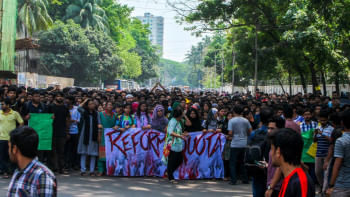
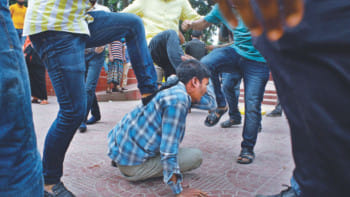


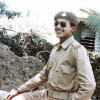

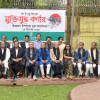

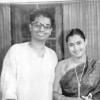


Comments